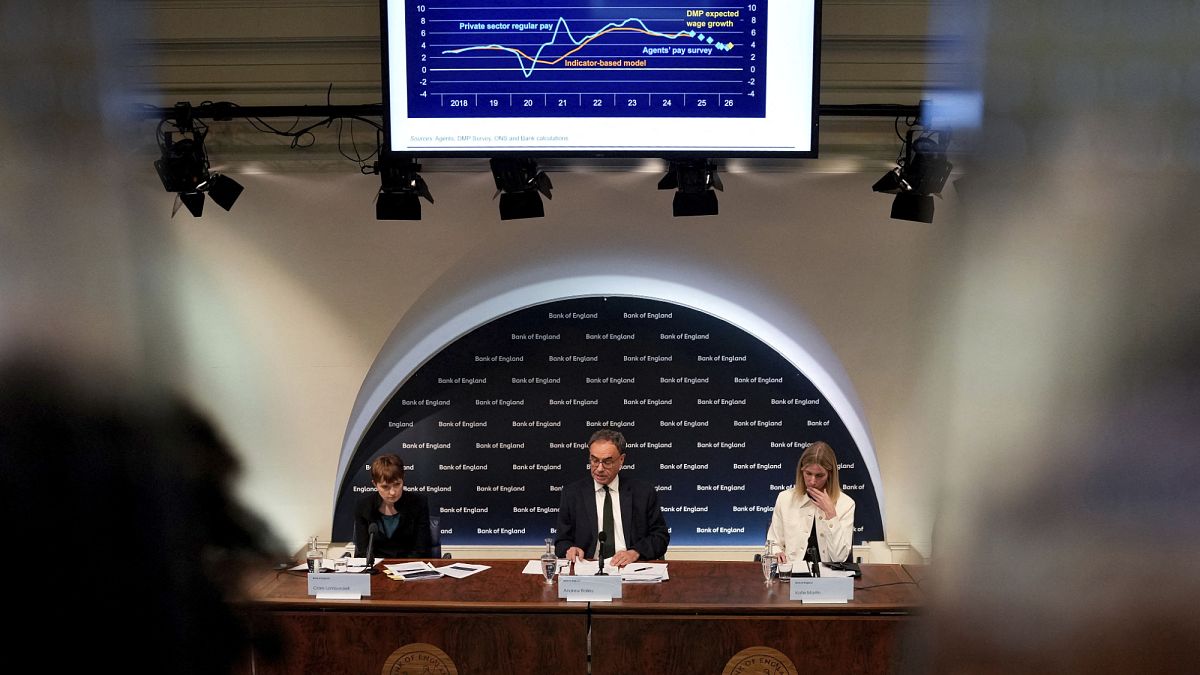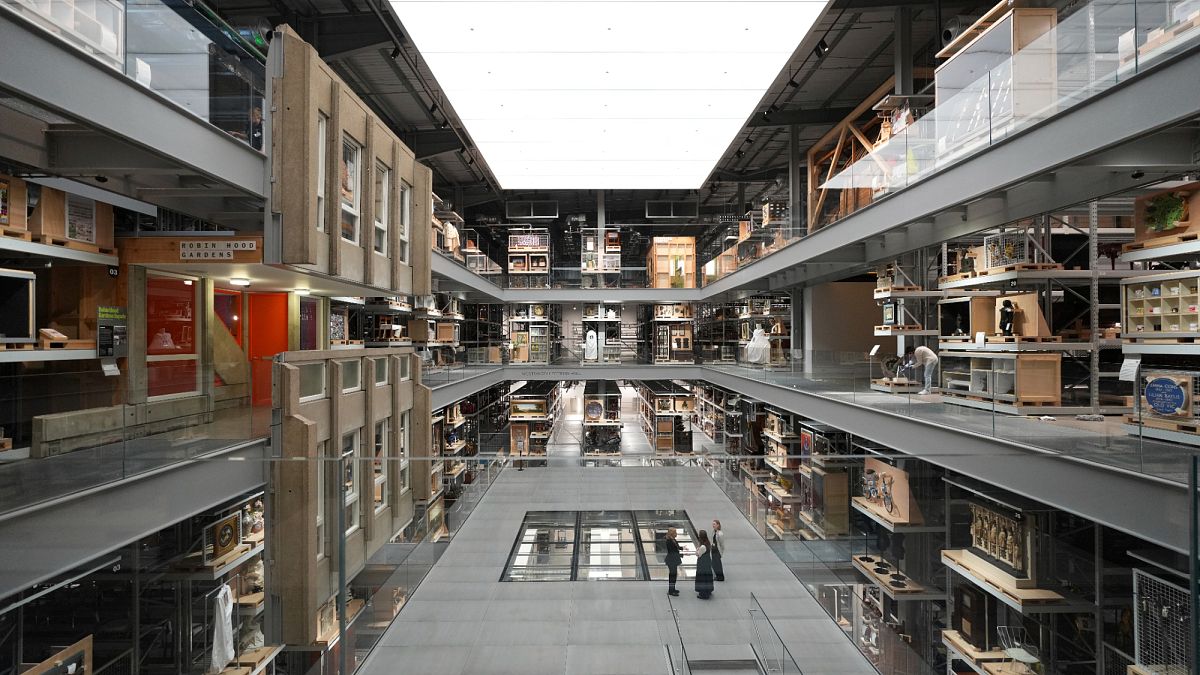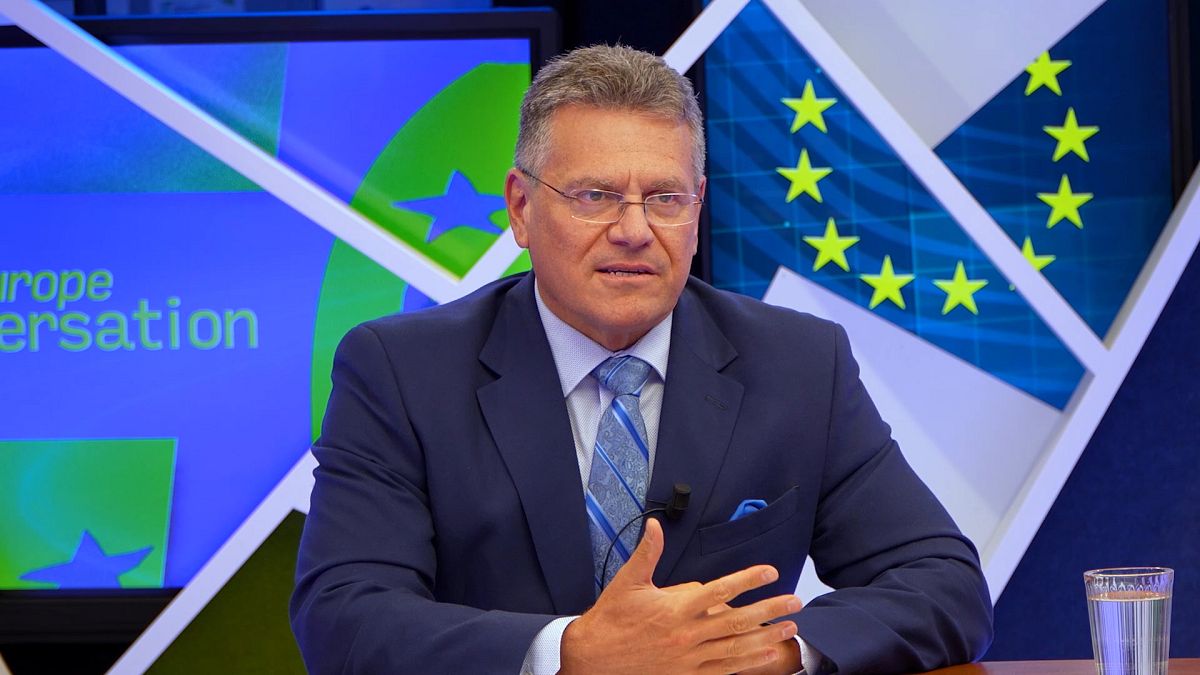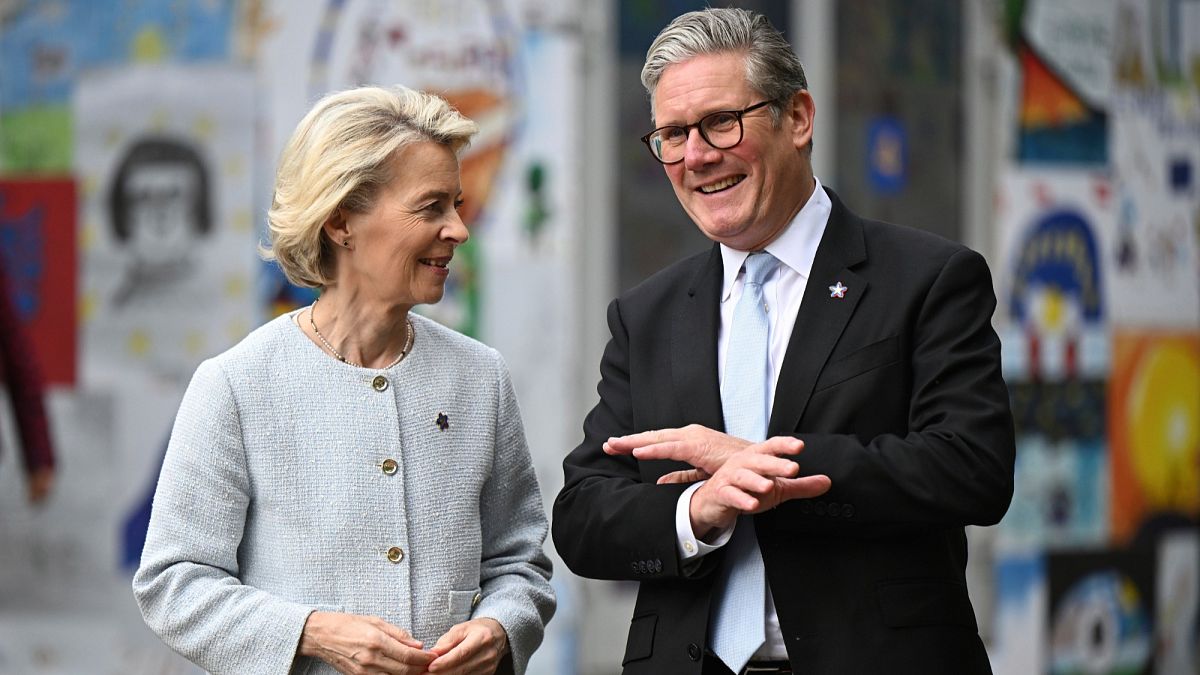Making music out of antisemitism: Uri Agnon on his new play
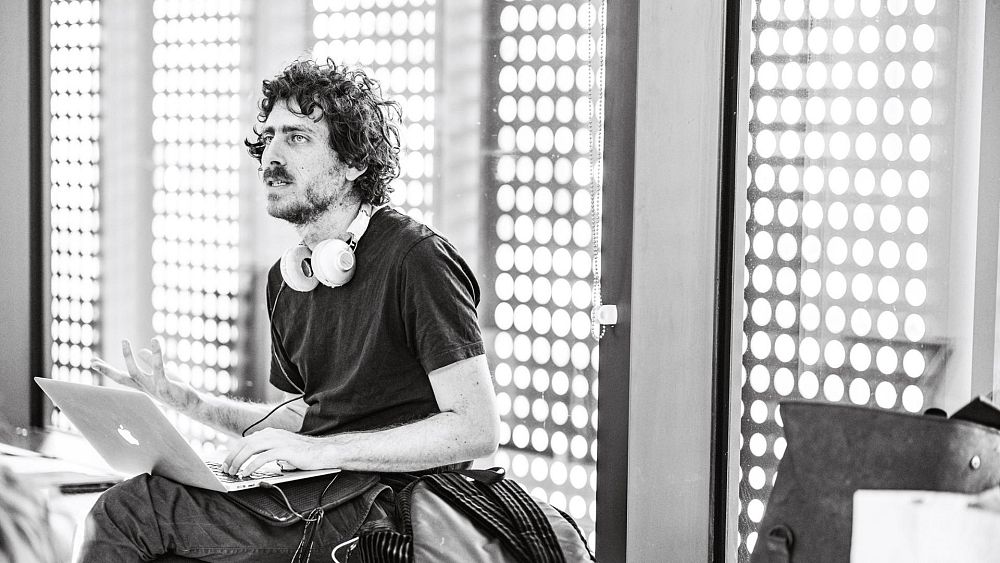
Speaking to Euronews Culture, the Israeli writer and composer explains how his views of antisemitism changed upon moving to the UK and how that experience has inspired his latest musical.
Uri Agnon’s new musical on antisemitism doesn’t provide many easy answers. Instead, ‘_Antisemitism: A (((Musical)))_’ is a bold attempt to collect the various complicated questions he was faced with when he moved to the UK.
Agnon is an Israeli composer and activist. In 2019, he moved to the UK to study a PhD at the University of Southampton in composition and the activist potential of music. Upon arriving in the UK though, he was suddenly engulfed in a political conversation about antisemitism he hadn’t expected.
Agnon spoke with Euronews Culture prior to the start of the Israel-Hamas War that began on 7 October.
Back in 2019, antisemitism was a hot topic. Jeremy Corbyn, then-leader of the country’s opposition Labour Party was embroiled in a media scandal over accusations of antisemitism which spilled over into wider conversations about antisemitism on the left of the political scale.
Agnon was used to being a Jew in a Jewish-majority country. “Being Jewish in Israel means being part of the identity that has the most power,” he explains. “I moved here, and suddenly that same identity is marginalised.”
When his experience of Judaism was as part of the majority, Agnon had – both personally and in his previous work – criticised the way antisemitism was weaponised by the right-wing Israeli state to drum up fear in the citizens. In the UK, it felt less like a political attempt to force compliance. “It definitely feels much more urgent, and much more real.”
And yet, between the two contradicting narratives in British politics at that time – one saying antisemitism on the left is a danger to the Jewish world and the other questioning if antisemitism was being weaponised to demonise political opponents – Agnon found neither wholly false or convincing.
“I was thinking, maybe neither of these are true at all,” Agnon says. And it’s not about saying, both sides are problematic there. It’s not about sides. It’s about finding a nuanced way of understanding something that goes so much deeper. Antisemitism is so much deeper than a political party or a person, it is part of the foundation of this society. And we have to understand it as such, if we want to deal with it.”
It’s from this starting point that Agnon began working on the musical. Told from the perspective of an Israeli Jew’s first 24 hours on British soil, ‘Antisemitism: A (((Musical)))’ is a hilarious and thought-provoking take on his own experience.
The musical combines multiple theatrical inspirations. Agnon does away with a fourth wall in a nod to Brechtian theatre; a choir sings antisemitic tweets throughout; and the songs themselves include some great humdingers.
An early song in the show ‘Take it as a Compliment’ has the Jewish lead character vying against the many “positive” stereotypes that British Jews can face via statement’s like “Jews control the world”. Another song ‘Guilty’ has the protagonist deciding it’s “time for someone else to feel guilty” as he throws off the guilty shackles of living in Israel, where Jews are in fact in control of the vast majority of parliament.
If those sound like contradicting messages, it’s intentional. This idea that Jews have power is really antisemitic when you talk about it in the UK. But in Israel Jews really do have power,” Agnon explains. The inability to discuss these slightly strange dichotomies is at the heart of the musical’s intent.
How do you stop antisemitism while still keeping a healthy critical eye on topics like Israel’s treatment of Palestinians? “I am very angry at the narratives that try to tell you that you have to choose between solidarity with Palestinians, and solidarity with Jews. I don’t think those two things come at the expense of the other,” Agnon says.
Agnon is quick to add that despite this, the musical isn’t an Israel-Palestine musical. Nor is it about Labour in 2019 (Corbyn isn’t mentioned). Instead, it’s more about the complicated ways Jews navigate the world of antisemitism from the perspective of someone new to his status as a minority.
This is, of course, a pretty heavy topic with historical and political baggage aplenty. Why a musical, then? Agnon is naturally perfectly poised to answer with his research background in using music for activism.
Using a performance, with multiple characters all spouting different views, is itself a good way to tackle an issue with myriad complex opinions. In a musical, you can “bring all sorts of voices together. You don’t say here is the authority, that authority will tell you what is true. I don’t want that. I want people arguing on stage.”
“We have a lot of people arguing on stage,” Agnon adds. It’s reminiscent of an old Jewish saying: “Two Jews, three opinions”. Jewish theology is defined by scholars of differing opinion arguing across centuries over interpretation. It’s only natural the tradition would extend to 21st century art.
In fact, the musical itself is a medium Jews have long gravitated to, remarks Agnon. “I see it as one of the best new Jewish traditions.” From George Gershwin, through Stephen Sondheim to Jonathan Larson; Jews love writing musicals. “I think there are reasons for that. It’s not just a coincidence. It has to do with this complexity, but also just fun at the same time, which is what my musical is aiming at.”
Antisemitism: A (((Musical))) is at the Camden People’s Theatre, London until 28 October with a post-show Q&A on 21 October.
Source: Euro News




